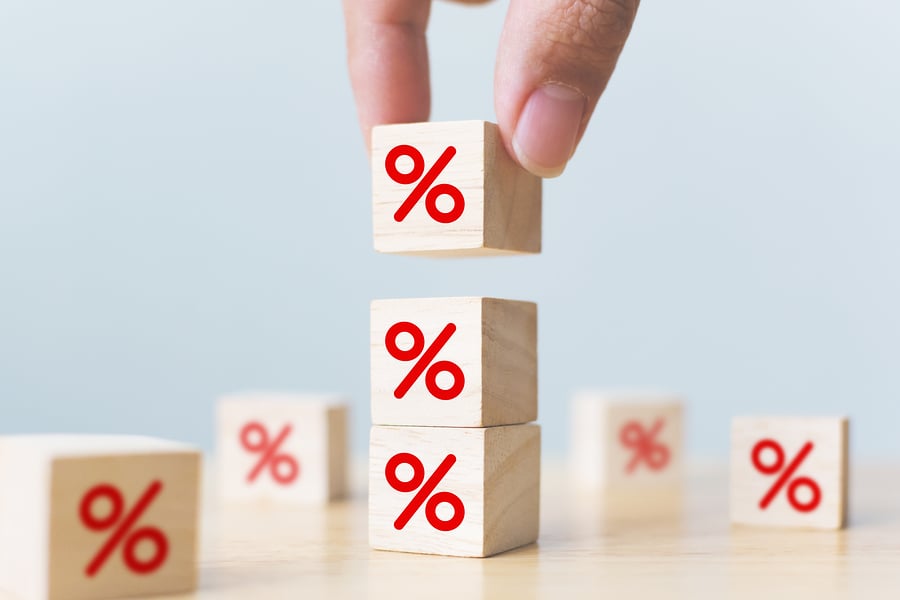

Nobel laureate in economics Paul Krugman said it’s entirely unclear where interest-rate levels are headed over the medium term, with arguments in favor of both a return to pre-pandemic levels and a higher-for-longer outcome.
“On interest rates I am fanatically confused,” Krugman said Tuesday on Bloomberg Television’s Wall Street Week with David Westin, with regard to whether borrowing costs will remain above pre-Covid levels. “Anyone who claims to know for sure what the answer is to that, is deluding themselves.”
Ten-year US Treasury yields are currently about 4.4%, compared with below 2% on the eve of the pandemic. The nonpartisan Congressional Budget Office earlier this year projected those rates at roughly 4% over the coming decade.
Krugman, now at the City University of New York, said it’s possible that a number of dynamics have “changed the picture” compared with pre-Covid. He cited substantially increased immigration, along with Biden administration industrial policy, “which is inducing a lot of manufacturing investment.”
Businesses potentially may also be stepping up capital spending thanks to new technologies, including artificial intelligence, Krugman said.
‘Either Case’
Even so, “maybe actually 2019 is still what should be our benchmark, and we’re going to go back to very low interest rates,” he said.
Federal Reserve policymakers, for their part, have slightly increased their median forecast of their benchmark interest rate over the long run to 2.6% as of March. Other economists have said it’s more likely at least 4% due to changes in the economy and fiscal trajectory.
Adjusted for inflation, that rate — known as R-Star — is seen by Fed officials at 0.6% over the long run.
“Has R-Star actually gone up” or “is this just kind of a transitory phase?” Krugman said. “I could make either case.”
Entitlement Programs
Krugman also played down worries about the level of federal debt, which the CBO sees as reaching unprecedented levels in coming years.
“What’s the historical record of countries — that borrow in their own currency — experiencing that kind of debt crisis, a strike by lenders, something like that?” Krugman said. “There’s almost no examples of that,” with the potential exception of France in 1926, he said. He noted that Japan has had “huge debt for decades now. Huge, persistent deficits. Still no crisis.”
At the same time, he said “we do have a problem” with regard to federal entitlement programs. “If you consistently spend lots more money than you take in, that can’t go on forever.”
“To cope with that at some point, you either have to start raising more revenue or you have to start cutting benefits to seniors,” Krugman said. “And we don’t seem to be politically able to do either of those things.”

"QuantumRisk, by design, recognizes that these so-called “impossible” events actually happen, and it accounts for them in a way that advisors can see and plan for," Dr. Ron Piccinini told InvestmentNews.

Advisors who invest time and energy on vital projects for their practice could still be missing growth opportunities – unless they get serious about client-facing activities.

The policy research institution calculates thousands in tax cuts for Washington, Wyoming, and Massachusetts residents on average, with milder reductions for those dwelling in wealth hotspots.

Yieldstreet real estate funds turned out to be far riskier than some clients believed them to be, according to CNBC.

The race to 100 transactions ended a month early this year, with April standing out as the most active month on record for RIA dealmaking.
Orion's Tom Wilson on delivering coordinated, high-touch service in a world where returns alone no longer set you apart.
Barely a decade old, registered index-linked annuities have quickly surged in popularity, thanks to their unique blend of protection and growth potential—an appealing option for investors looking to chart a steadier course through today's choppy market waters, says Myles Lambert, Brighthouse Financial.
